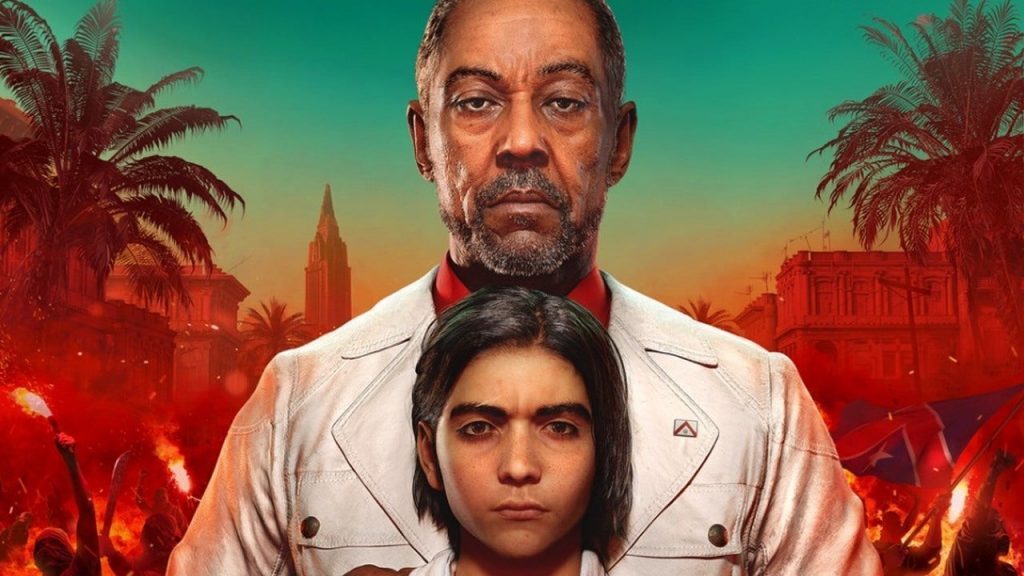The Far Cry series has visited some exotic locations in its time, but for the most part, they’ve all had something in common – they exist at the fringes.
Whether players were bolting through the tin-pot dictatorship in Far Cry 4, scrabbling to survive in the pirate-controlled island fiefdom in Far Cry 3 or battling cultists in the USA heartland in Far Cry 5, both the antagonists and the environments they inhabited existed off the beaten path.
Far Cry 6 is something of a different beast. Set in the tropical island nation of Yara, it initially comes across as a typical world in this series until players take a closer look, after which it’s obvious that Yara is an approximation of Cuba – and a highly authentic one at that – and it sits on the USA’s doorstep.
Far Cry 6 straddles the real world
By now the trailers and assets in circulation have given players a pretty good idea of the game’s set-up story-wise. Players take on the role of a young protagonist who joins a guerrilla movement in order to overthrow the dictator – Anton Castillo, played by Breaking Bad’s Giancarlo Esposito – who rules Yara with an iron fist.
But what these teasers also demonstrate is the fact that Far Cry 6 isn’t dismissing the political and social ramifications of its setting or protagonist as simply backdrop. For the first time in a while in this series, the game’s hero Dani Rojas, has a narrative that extends beyond the need to simply survive.
Rojas is a guerrilla fighter. Born out of the flames of an oppressive regime, Rojas is committed to toppling Castillo’s government and plotting a better path for Yara’s people. Her narrative is embedded into everything the player does and it’s spawned from the culture and history of the country Yara is based on, Cuba. According to Far Cry 6’s Narrative Director and Lead Writer Navid Khavari, this was locked in from the earliest stages of development.
“It was roughly five years ago [we decided on the setting]. We spent a solid chunk of time looking at locations, looking at places that inspired us,” he says.
“There were ten of us in a hot and sweaty server room one evening, and we started circling around the idea of taking Far Cry back to a tropical location. We knew the fans were excited to go back to a setting like that. When we landed on the idea of players inhabiting a guerrilla fighter, we went down the rabbit hole of looking at Cuba’s history and Cuba as an inspiration. That’s when things start snowballing.”
The place dictates the story
Once the team zeroed in on Cuba as the inspiration for the world, they intended to create, it offered a whole host of possibilities for the team to really juice up the game’s player experience.
“We were searching for a way to freshen up or modernise the rebel angle in a different way. We’ve seen characters in Far Cry that have come from that rebel point of view, but in terms of the player inhabiting a rebel who has their own character, who has their own point of view, that is fighting for something bigger than themselves, this was new,” says Khavari.
“We made sure we worked very closely with experts who could help us create an authentic world. We didn’t want to do an authenticity check at the end of production – by then so many assets are locked in, it’s too late. So, we had a rotating group of experts who we could send things to over the course of production – assets, visuals, dialogue scripts – which really helped.”
Far Cry 6, given its setting and the attention to detail of its base inspiration, seems to rub up quite vigorously against its publisher’s repeated missive that its games are in no way political. Khavari has a different take on this.
Let’s get political
“I can’t really speak to what people have said about politics in the past. What I’ve said is that you can’t really make and release a game that has a revolution in it without being political. For me it would feel odd to say anything else,” he says.
“The main thing is, what was important to us – and what can sometimes get lost in the conversation is that politics in this regard is never black and white. We kind of live in this state where we want easy answers – the good guys vs the bad guys – and Far Cry 6 isn’t that! We intentionally wanted it to be complex.”
“There are folks in the story for example that voted for Castillo before they realized who he was and later joined the rebels. We’re talking about a lot of issues in Yara; the rise of fascism, the rights of the LGBTQ+ community in Yara, how imperialism can wreak havoc on a nation and the legacy of that.”
“Far Cry 6 had to be political in nature.”




